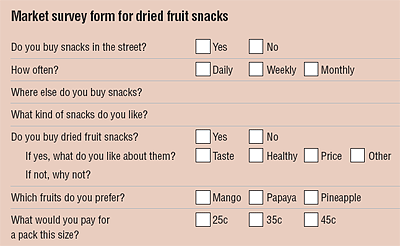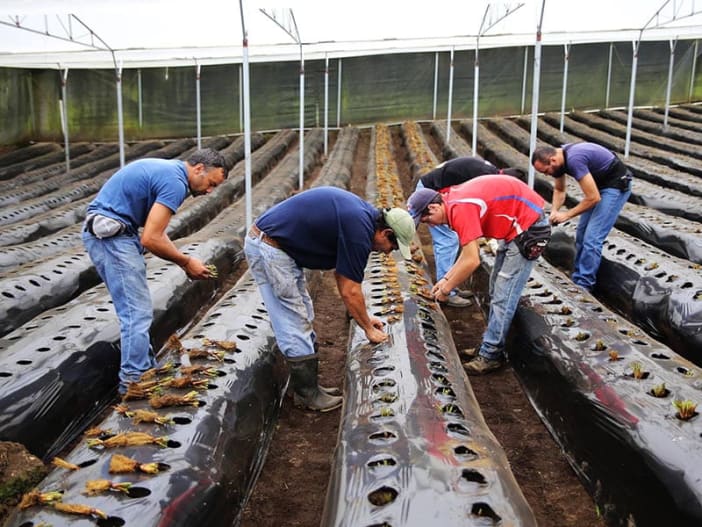Market research is a key tool for helping small producers to sell their products. Marketing is about selecting and designing products that are likely to sell, rather than making products without checking to see if they are likely to sell. There are several key stages to consider.
Identify customers
Who are the expected customers? Are they men or women, children, restaurants, institutions, international buyers? What do they buy at present? What might influence their choices? This might include attractive packaging, price and reliable supplies.
Market surveys
Find out what these customers want. Design a simple questionnaire to use with sample groups. You need at least 20 people and ideally 100 to carry out a reliable survey. Use the survey with people who represent the likely customers. Don’t choose people you know. Once the survey is complete, count up and analyse the results. For example, 45 out of 60 interviewees said they preferred mango (75%) to other dried fruits.
Work out the potential demand by combining these findings with the size of the target group. Look at the likely competitors. For example, if 5% of school children surveyed said they are likely to buy a fruit drink each week and there are 15,000 school children in the town, the total market among school children will be 750 each week (15,000 x 5/100). There are two competing producers. This will help to plan production of appropriate quantities.
For small producers, getting to know their customers, serving them better and gradually expanding is the best way forward.










